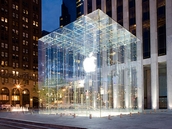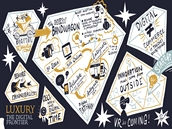interviewing jörn gieschen, ie premium and prestige business observatory researcher and tourism expert |
What defines the experience of a Premium city traveler?
Let me first lose a word on the term "experience", because it probably is one of the most abused words in travel marketing. There are hotels buying a great mattress, offering 3 different pillows and then call it the "Brand x sleep experience". Premium city travelers are used to high quality in hard- and software, they expect it and it satisfies them, that's it. For them a real experience is an event or activity that raises exceptional emotions and memorable impressions. Something that touches them deeply, something they still remember in 5 years, that they talk about to their peers, and that they are happy to pay for. Designing meaningful tourist experiences is almost a science; it requires a deep target group understanding, the knowledge of different experience concepts, specific management approaches, and finally lots of creativity. Our research across countries like the US, UK, Russia, and Brazil shows that the most popular experiences could be linked to topics like local cuisine, architecture, and art scene, for example. |
 |
What role does technology play in organized experiences?
As mentioned before, technology as "using scientific methods", is very important in professionally designing and managing high value experiences. Regarding digital approaches, they more and more are used to increase or manage the quality and value of an experience, but not necessarily are a central or visible element of it. There are exceptions of course. There is a great concept embracing virtual reality 3D glasses and augmented reality that lets you dive into the urban life of Tarragona as it was 2000 years ago in the Roman times in a jaw-dropping way. But still, deeply moving experiences are often related to direct personal connection to other humans, to culture or to nature. Touching the heart, creating magic, room for the unexpected, all this is often not achievable with mostly technology driven concepts.
How has technology transformed consumer and urban traveler decision making and experience?
Urban travelers are at the customer forefront of the digital evolution of travel. Searching for information & inspiration and booking online is done by the majority of travelers already, but in addition we have a huge number of apps and mobile services now mainly focused on city travelers. On Google Play you can find over 250 apps dedicated to the city of Madrid, for example, the vast majority of them are travel related. But while online use before a city trip is most common already, using the smartphone in international destinations is still developing. Travelers are still learning, even though rapidly, that being online within the EU, for example, does not cost the world. Furthermore, they are also just learning that there are some great apps out there making city discovery more easy, more interesting and fun, and sometimes even more affordable. We see web platforms or social media services where travelers get in personal touch with locals having something interesting to offer, not only private accommodation, but also privately guided activities and tours, meet-ups with likeminded souls, etc. This opens door to discover cities in totally new ways and allows for a huge diversity of very special and personal experiences. If you look around the industry, you find many examples of embracing the digital era for richer city travel experiences. Just look at Startups like Spanish spontaneous city discovery App Toursnapp or Airbnb's recent acquisition of Barcelona-based Trip4real offering activities with locals |
|
|
#smartpremium tourism experience |
Maria Eugenia Girón, Executive Director of the IE Business School Premium and Prestige Business Observatory, will moderate the roundtable that will follow the presentation of the latest research carried out by the Observatory on the role of technology creating and facilitating experiences in premium tourism. Jörn Gieschen will present the results of this research study. The guests of the roundtable will be Pernilla Winberg Baptist, Head of the Priceless Cities program at MasterCard and Sandra Manresa, Director of Google Trips.
It will take place on January 10th, 2017 at IE Business School – Serrano, 105. The event will start at 6:30 p.m. |
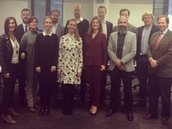
|
|
|
focus on shopping tourism in spain |
Summit Shopping Tourism and Economy celebrated its second edition on November 29th and 30th at CaixaForum Madrid. The organizing committee included members of El Corte Inglés or La Caixa, among others. The event’s main topic this year was shopping tourism in Spain as a driving force for social and economic growth. This edition had important guests, such as de Dimas Gimeno, president of El Corte Inglés, and José Luis Perelli, president of EY España. |
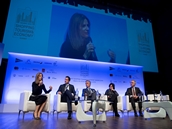
|
|
family business and the luxury sector |
by María Eugenia Girón
|
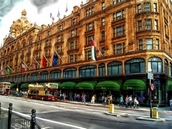
|
Many companies, even in the Premium sector, are not able to overcome the critic moment when the founder and the brand’s creative soul disappears so the brand dies and disappears with them too.
Read article @ Forbes Mexico |
|
|
|


